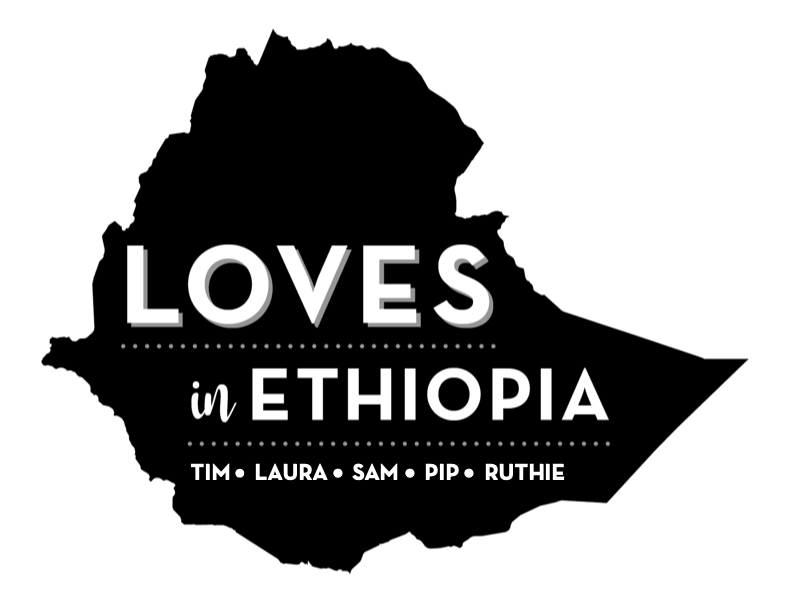language and hope
We are in our second week of language school, and if you could see what we’ve been doing, you might think we were children. Despite the Amharic we already knew from prior time spent in language study, we still find ourselves reciting the words for cat, dog, cow, horse, etc., writing one Amharic letter [fidel] over and over on the same line, and learning so many basic things that we hope will build on each other to create some amount of language proficiency. We want that so badly, but still it is humbling to start at the beginning like a child. We find ourselves doing some things well, but also struggling to remember, feeling exhausted after school, and with SO much still to learn--missing the feeling of being good at something.
We have had four different teachers during our two weeks of school, and our teacher this week is kind, knowledgeable, and all around lovely—we have enjoyed her very much. Today during a break she had a question for Tim. Someone close to her has a brain tumor—she is 29 years old, has a ten month old baby, and has recently gone blind because of the tumor. Her family gathered enough money to have her seen at two different hospitals, and the reports were the same—they could try to remove the tumor, but it’s a risky surgery that she may or may not survive, and it may or may not result in her vision being restored.
The family is left with a difficult decision of how to proceed, and our teacher wanted Tim’s opinion. He asked some questions, looked at some pictures, and sympathized with how difficult the situation is. After offering his medical input, he talked about how it’s so easy to put all our hope in this life—being healthy now, being happy now, having all the things we long for now. But that our world is broken, young mothers lose their ability to see their own baby, and that no matter how hard we try and how much money we spend, we can't rid our lives of the brokenness we’re born into in this world.
Tim asked if he could pray, and proceeded to pray for wisdom for their family to know how to proceed. We’re thankful that this young mother knows Jesus, so even as she experiences so much suffering now, she has heaven awaiting her—which we then read about from Revelation 21…
”Behold, the dwelling place of God is with man. He will dwell with them, and they will be his people, and God himself will be with them as their God. He will wipe away every tear from their eyes, and death shall be no more, neither shall there be mourning nor crying nor pain anymore, for the former things have passed away.”
Then Tim handed his phone to our teacher to read the same passage in Amharic. She read aloud, and Tim and I were blown away---we understood many of the words! We are far from reading and understanding it completely ourselves, but that fact that we could already grasp some of the beauty of that passage in another language was incredible.
In the midst of a mundane day of language school, in the midst of feeling like a child, in the midst of mispronunciations and forgetfulness and stumbling through another language—God gave us this incredible glimpse of what He has called us here to do. Today we could do it with our teacher in English—enter into someone’s suffering, offer medical advice, pray, read truth from the Bible—but by God’s grace one day we will be able to do it in Amharic.
So onward we go, looking forward with great anticipation to the day we can hold out the hope we’ve been given in English and in Amharic.

